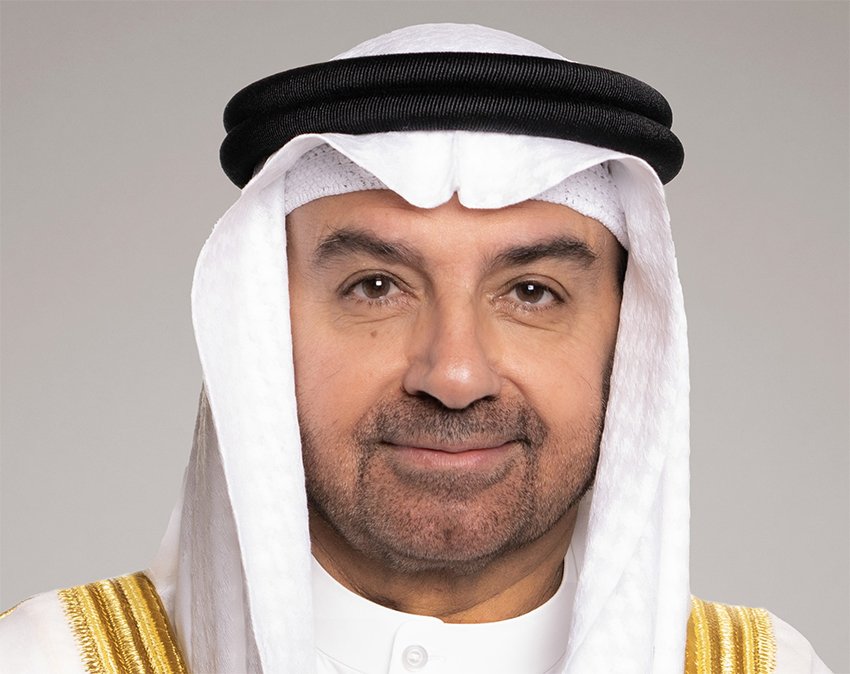13/08/2023
13/08/2023
KUWAIT CITY, Aug 13: The Deputy Prime Minister, Minister of Oil, Minister of State for Economic Affairs and Investment, and Acting Minister of Finance Dr. Saad Al-Barrak says the draft budget has taken into account the global and regional economic developments and their impact on the local economic situation and the events surrounding the country, as well as the challenges facing the state’s public finances, in order to move forward in achieving a diversified economy and developed infrastructure, and improving the business environment to provide a better standard of living, reports Al-Qabas daily.

In his speech concerning the economic, global and monetary conditions and the draft general budget for the 2023/2024 fiscal year, Dr. Al-Barrak explained that the strategic directions of the state, its general policy and its future aspirations will not be achieved without the collaboration of the efforts of the legislative and executive authorities in order to strengthen the country’s march towards achieving the economic, developmental and social goals on the basis of which the draft general budget of the state was prepared. The ministries were directed to cancel unnecessary and secondary expenses that do not affect the performance of government agencies.
Kuwait’s economy depends on the oil sector, and the budget expenditures are witnessing growth due to the increase in salaries and subsidies. Yet, the non-oil revenues are not witnessing stability, which means the state relies mainly on oil revenues to finance the public expenditures and development projects.
To ensure financial sustainability in Kuwait, the government has prepared an action program with the aim of achieving sustainable economic growth, diversifying the economy, reforming the state budget, and improving financial planning. Projects that support diversification of the economy and financial reforms will be implemented to control spending and plan financial resources in a sustainable manner.
Economic developments
- Global - The global economy is going through a very uncertain period with the cumulative effects of the past three years of successive crises, particularly the COVID pandemic, the current conflict between Russia and Ukraine, the continuous disturbances in supply and demand rates and supply chains, and the sharp rise in commodity prices, which led to inflation rates reaching levels not seen in the world since decades, and prompting most central banks to tighten monetary policies and raise interest rates to counter inflation, as well as a decline in growth rates in most economic regions.
- Regionalism - While the economy of the Middle East outperformed all other economic regions in 2022 with expectations that it will face slower growth in the coming years due to lower oil prices and with an expected decline to USD 74.2 per barrel in 2023, and USD 70 per barrel in 2024, it is expected that the region will be less affected by inflation due to subsidies, but it will still face higher prices compared to pre-pandemic levels, especially in basic commodities such as food.
- Local - Kuwait is still very dependent on oil revenues, as economic growth is expected to decline to 0.1 percent in 2023 (real GDP of KD 39.8 billion) despite the high oil prices, and due to the decline in oil production, compared to 8.2 percent in 2022. Inflation was contained due to the limited transmission of the effects of high food and energy prices globally, thanks to the administratively directed price system and subsidies and to the tightening of monetary policies. The balance of public finances and the external balance gained strength thanks to the increase in oil revenues, as the fiscal surplus rose to 22.5 percent of GDP in 2022, compared to 6.4 percent of GDP in 2021.
- Public debt issues - The total outstanding balance of public debt at the end of the year 2022/2023 amounted to approximately KD 1.63 billion. No domestic or international sovereign debt was issued due to the expiry of the law that allows the government to issue public loans.
Budget rules, foundations and directives
● The continuation of the state’s policy to rationalize spending, compress expenditures, and address the structural imbalances in the budget.
● Linking the budget and the various projects with the government’s action program, which aims to build an advanced and sustainable economy.
● Emphasis on providing funds for the implementation of strategic projects.
● Directing ministries to cancel unnecessary and non-infl uential secondary expenditures. New Changes Salaries -
An increase in salary allocations by 14 percent to reach KD 14.98 billion as a result of:-
- Adding an amount to cover the exchange on the cash alternative for the previous year.
- Recruitment cost.
- An increase in the government’s contribution to the Public Institution of Social Security. 4. Adding a pledge amount for previous years.
Subsidies - Increased by 35 percent to reach USD 5.98 million and included:-
- Energy subsidies and an increase in the amount of partial payment of the dues of the Petroleum Corporation.
- Other subsidies such as the increase in student grants, food supplies, and housing subsidies.


